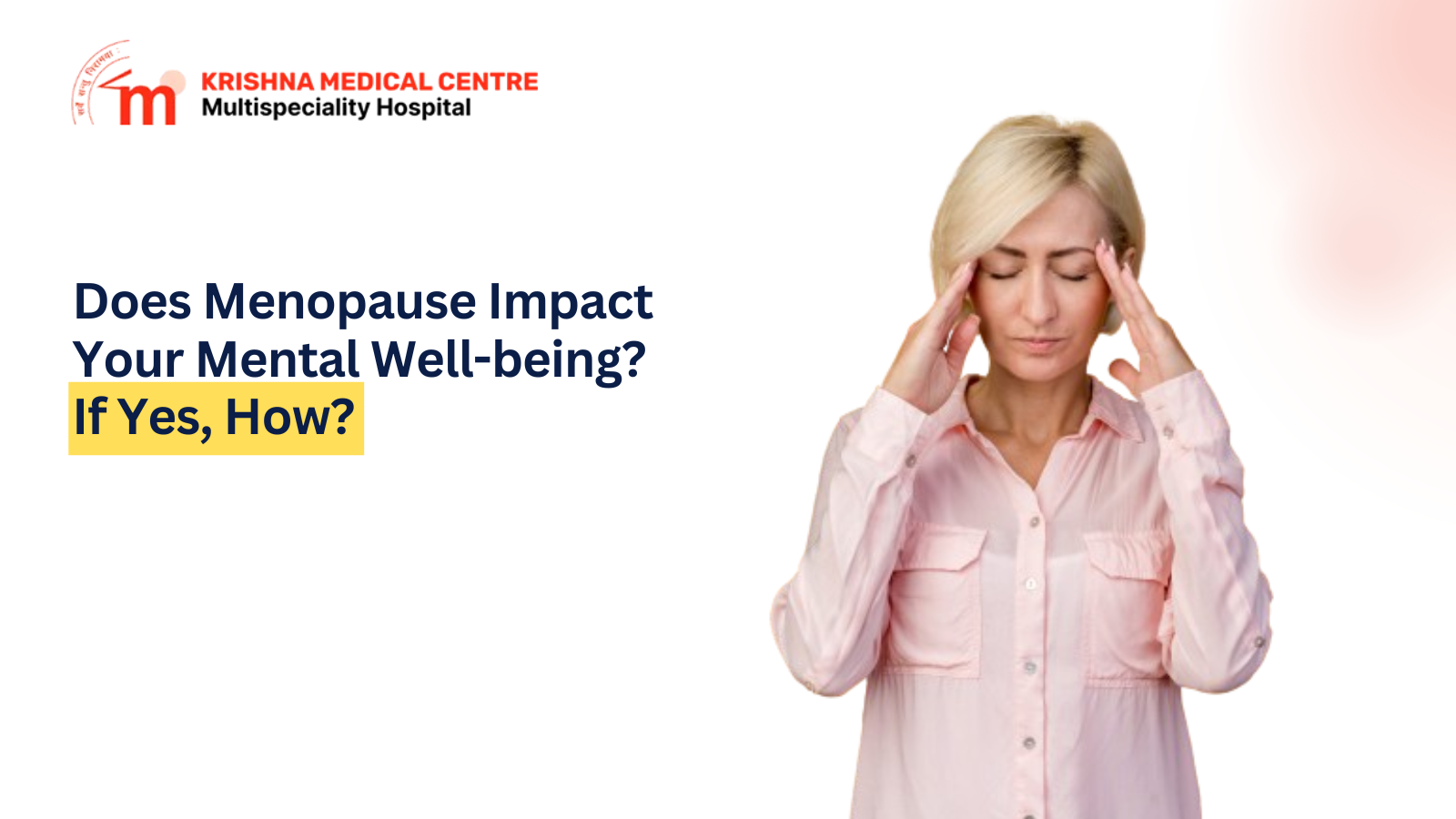

Beware of frauds: Online appointments are available only after confirmation with the hospital for any of our consultant doctors.


Menopause is the natural stage of ageing when a woman's reproductive cycle comes to an end. It occurs when a woman has not had her menstrual cycle for more than a year. Although it is a normal biological landmark, the changes it brings can greatly affect your mental health. The symptoms of menopause, from hot flashes to hormone imbalances, can affect both physical and emotional health. This blog will help you understand the connection between menopause and mental health and symptoms while providing coping strategies, focusing on how hormone replacement therapy (HRT) and other treatments can offer relief for women facing these challenges.
Perimenopause starts much earlier than the age of 51 when, on average, women begin menopause. During this stage, the estrogen and progesterone levels start to drop, and hormone imbalance causes hot flashes, night sweats, and emotional instability. The serotonin level falls with a neurotransmitter connected to mood regulation, exacerbating psychological symptoms.
Alongside physical discomforts, many women experience:
For some, these changes are mild and manageable. However, others may endure severe symptoms that disrupt daily life, affecting relationships, work, and overall mental health.
Hormonal imbalances during menopause can manifest in various mental health challenges. You may notice:
Recognising these symptoms is crucial to address them effectively.
While menopause and its symptoms cannot be avoided, effective coping strategies can minimise their impact on your mental health:
Understanding that menopause involves gradual physical and psychological transitions can help you approach the challenges with greater awareness and acceptance.
If menopause symptoms significantly impact your life, consulting a healthcare provider is essential. Treatments like HRT therapy can help balance hormone levels and reduce both physical and mental symptoms.
Sharing your experiences with family, friends, or support groups can provide emotional strength and help you navigate this life stage with confidence.
A balanced diet, regular exercise, and adequate sleep can combat stress and improve both physical and emotional health. These habits also counteract some hormone imbalance symptoms, promoting mental stability.
Taking time for yourself, practising relaxation techniques, and focusing on hobbies can significantly boost your mood and mental resilience.
Having taken proactive measures before menopause helps to reduce the severity of symptoms during the transition, thus having a positive impact on your mental well-being. Focus on:
These habits are helpful to support hormone balance, as well as contribute to emotional well-being, which helps women make menopause easy.
By nature, menopause is a transition in life; it comes with its own set of challenges and opportunities. While at times the physical symptoms, as well as emotional ones, become too heavy to bear, they also keep the door open for improvement and focus on wellness while embracing a new chapter in life with care and strength for one's self. With self-identification of symptoms and incorporation of healthy lifestyle choices along with professional help if necessary, one can emerge into menopause with greater ease and elegance.
Menopause doesn't have to be a struggle. Meet our dedicated team at the Krishna Medical Centre, all led by renowned gynaecologist Dr Chandrawati, who provides compassionate, patient-centred care to help in navigating menopause with ease, whether you are looking into hormone replacement therapy or need guidance on helping manage symptoms of hormone imbalances. We are here with you every step of the way. Schedule your consultation with us and take the easy road to menopause. Your well-being is our best priority!